Before dwelling on free VPNs and paid VPNs and their pros and cons, let’s understand what a VPN is and the features of the same!
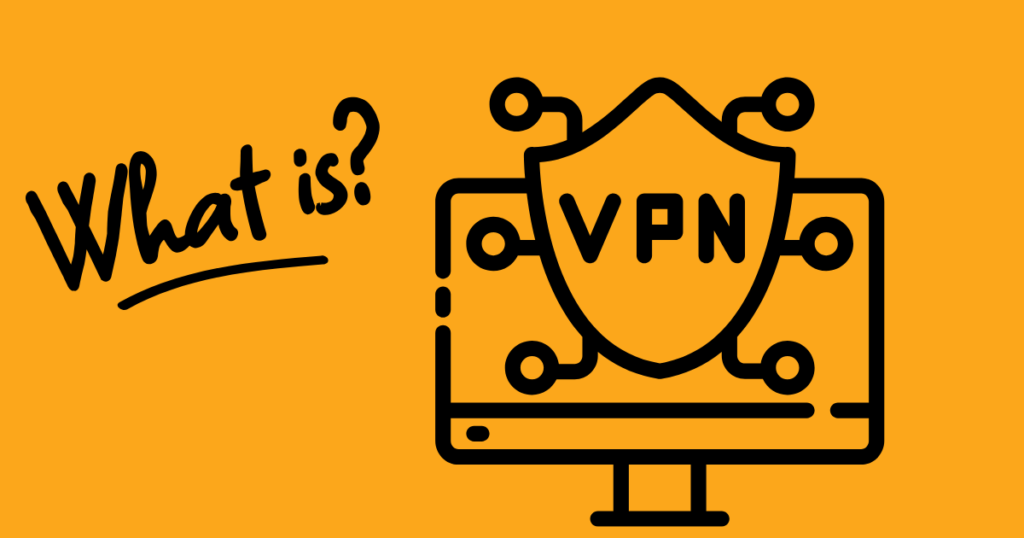
What is a VPN?
A Virtual Private Network (VPN) is often considered an essential tool for internet users seeking privacy, security, and anonymity online. But what exactly is a VPN? Simply put, a VPN is a network of servers that allows users to create a secure and encrypted connection to the internet and access it through a different location.
When you connect to the internet, your device sends and receives data through your Internet Service Provider (ISP) and various websites and services you interact with. Your device’s IP address, essentially a digital identifier, is visible to these entities, making it relatively easy for them to track your online activities.
However, with a VPN, your device establishes a tunnel-like connection with a server located in a different geographical location. All the data traffic between your device and the server is encrypted, ensuring that your ISP and other prying eyes cannot see what you’re doing online. Your device’s IP address is also replaced with the IP address of the VPN server, masking your true location and making it difficult for websites or services to identify you.
The encryption aspect of a VPN is crucial for protecting sensitive information, especially when using public Wi-Fi networks. These networks, commonly found in coffee shops, airports, or hotels, are often unencrypted, leaving your data vulnerable to hackers. By using a VPN, your data is encrypted before it reaches the public network, adding an extra layer of security and allowing you to browse the internet worry-free.
What Are Free VPNs And Paid VPN Services?
VPNs are tools that allow users to establish a secure and encrypted connection to the internet, protecting their data and ensuring anonymity. While some VPN services are completely free, others require a paid subscription. In this article, we will delve deeper into the differences between free and paid VPN services.
Free VPN
Free VPN services, as the name suggests, do not require any monetary commitment from users. Instead, they generate revenue through other means such as advertising, data selling, or limited features. These services may come with certain limitations, including slow connection speeds, bandwidth restrictions, limited server options, and data caps. By providing a free service, VPN providers aim to attract a large user base, which can then be monetized through various means.
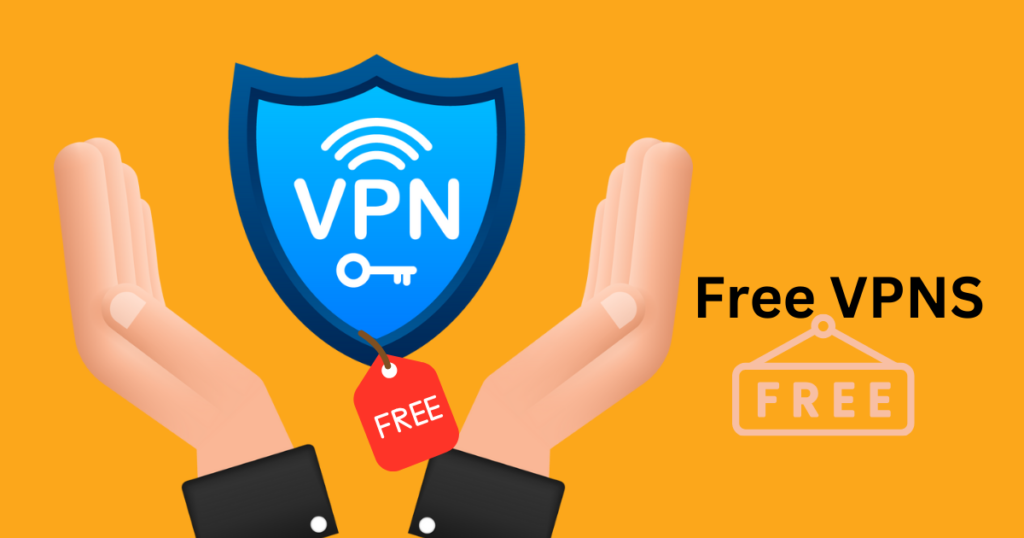
Paid VPN
Paid VPN services require users to pay a subscription fee in exchange for a more comprehensive and reliable service. While the cost of these services can vary, users can expect to gain access to faster speeds, unlimited bandwidth, a larger number of server locations, and enhanced security features. Paid VPN providers such as Nordvpn, Surfshark VPN, Express VPN, etc. have a vested interest in maintaining a high-quality service to retain their customers. They also tend to have stricter privacy policies compared to their free alternatives, as user satisfaction and protection become a priority.
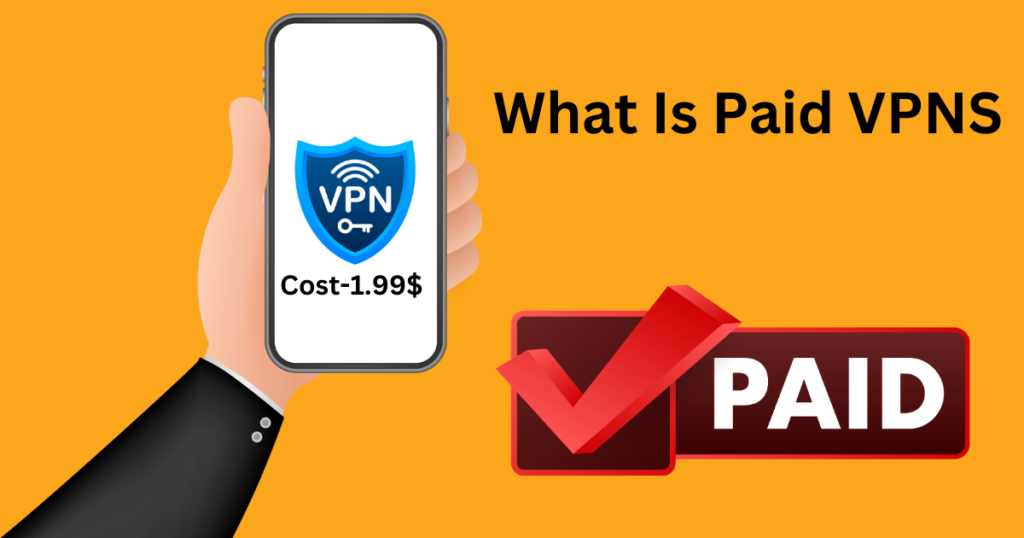
When it comes to choosing between free and paid VPN services, it is crucial to consider your individual needs and priorities. Free VPNs can be a good option for occasional use, such as accessing geo-restricted content or using public Wi-Fi networks. However, if privacy, unrestricted access, and faster speeds are of utmost importance, it is advisable to opt for a paid VPN service.
Pros of Free VPNs
- No Upfront Cost: The Ultimate Convenience for Consumers
The concept of no upfront cost has revolutionized the way consumers approach purchasing products or services. Gone are the days when consumers had to shell out a significant amount of money before even trying out a product or availing themselves of a service. Nowadays, companies are offering the ultimate convenience by eliminating the need for an upfront payment.
- Unrestricted Access to Content: Embracing the Era of Freedom
Unrestricted access to content has opened up a world of possibilities for individuals across the globe. Whether you are searching for historical facts, learning new skills, or simply seeking entertainment, the internet provides an abundance of resources tailor-made to cater to your needs. From academic websites and online courses to streaming platforms and social media, there is something for everyone.
- Easier Setup Processes
Easier setup processes are not only beneficial for customers but also for businesses. Providing a frictionless setup experience enhances customer satisfaction and reduces the likelihood of returns or negative reviews. It establishes a positive brand image and fosters loyalty among customers. Additionally, easier setups reduce the burden on customer support services, allowing companies to allocate their resources more efficiently.
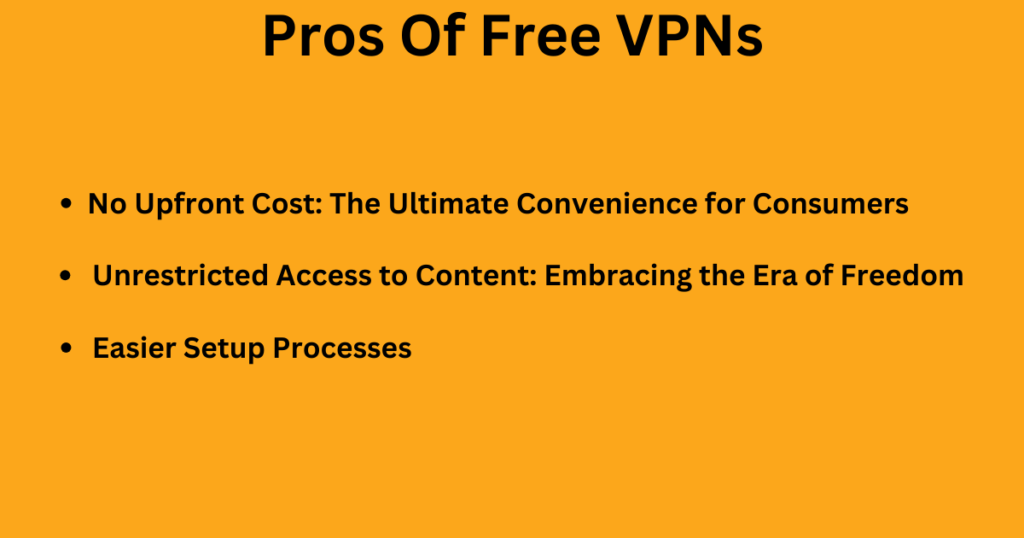
Cons of Free VPNs
- Low Security Levels Compared to Paid Options
First and foremost, low security levels often imply weak passwords or lack of encryption, making it easier for cybercriminals to access and exploit personal or sensitive information. With the increasing sophistication of hacking techniques, it is crucial to employ robust security measures that can withstand numerous attacks. By using strong passwords and encryption, paid security options provide an additional layer of protection, ensuring that our online activities remain secure from prying eyes.
- Limited Bandwidth Usage and Speeds
Limited bandwidth usage refers to the maximum amount of data that can be transmitted within a given period of time. Internet Service Providers (ISPs) often impose limits on bandwidth usage to ensure fair and efficient distribution of network resources among their subscribers. These limits are typically influenced by factors like the type of internet plan, the number of users on a network, and the overall network infrastructure.
- Possible Ads, Malware, and Spyware Issues
The potential for encountering malware and spyware is amplified by the nature of digital advertising. Ads are often delivered through third-party networks, which can be susceptible to hackers and cybercriminals. These bad actors exploit vulnerabilities in ad networks to inject malware or spyware into seemingly harmless advertisements. This allows them to infect a large number of devices within a short amount of time.
- Lack of Reliable Support for Troubleshooting Issues
One common frustration that many individuals and businesses face when dealing with technology is the lack of reliable support for troubleshooting issues. Whether it’s a malfunctioning device, a software glitch, or a network connectivity problem, encountering technical difficulties can be incredibly frustrating. However, what adds to the frustration is the inability to find reliable assistance to resolve these issues in a timely manner.
- Difficulties Connecting to Specific Servers or Locations
Connecting to specific servers or locations can sometimes be a frustrating experience. Whether it’s due to distance, technical issues, or network restrictions, encountering difficulties can impede our online activities and dampen our mood. Understanding the reasons behind these roadblocks can help in finding solutions and ensuring a smoother online experience.
- Potential Risk of Data Logging and Selling User Information
Where the exchange of information has become second nature, there is a growing concern regarding the potential risks associated with data logging and selling user information. This practice, commonly employed by various tech companies and online platforms, involves collecting and analyzing user data for various purposes, including targeted advertising, product improvement, and market research. While these practices may have their advantages, there are significant potential risks that need to be addressed.
Why You Should Avoid Free VPNs: The 8 Biggest Risks
However, not all VPNs are created equal, and opting for a free VPN can pose significant risks to your online privacy and security.
Here are the eight biggest risks associated with using free VPNs:
1. Advertisements and data collection: It’s a common practice for free VPN providers to monetize their services by bombarding users with advertisements. These ads can be annoying and invasive, but more importantly, they often collect and sell your data to third parties, compromising your privacy.
2. Limited server options: Free VPNs usually offer a limited number of servers to their users. This limitation can result in overcrowding, slow speeds, and unreliable connections, ultimately hampering your browsing experience.
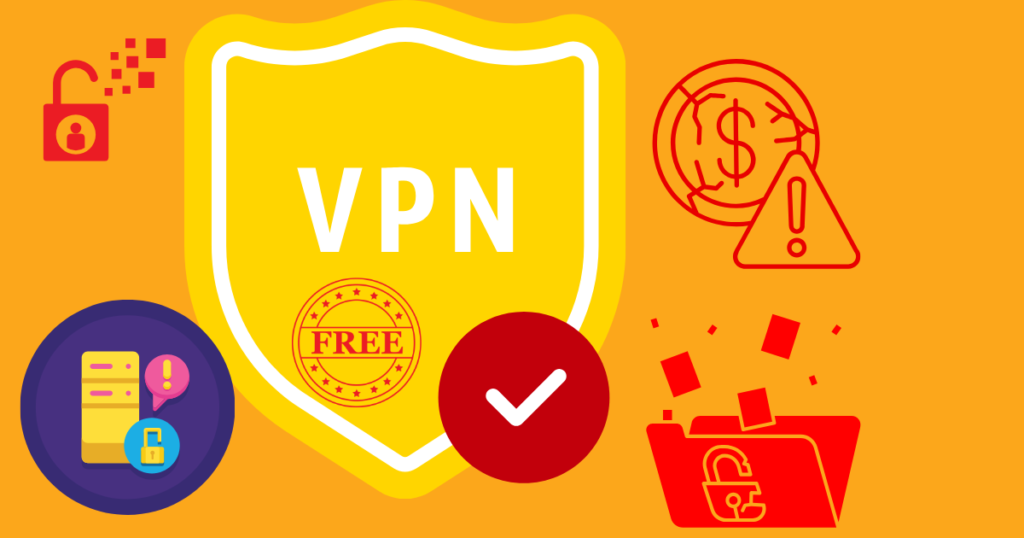
3. Insufficient security measures: Free VPNs often lack the robust security features that premium VPN services provide. Without strong encryption protocols and secure tunneling, your sensitive information can be vulnerable to cyber-attacks and data breaches.
4. Hidden malware and viruses: Some free VPN providers insert malware or viruses into their software. When you install and run their application, you might unknowingly expose your device to harmful software that can compromise your privacy and even damage your device.
5. Data logging and selling: Many free VPNs claim to have a “no-logs” policy, meaning they don’t keep a record of your online activities. However, reports have shown that several free VPN services have violated these promises and logged user data, which they then sell to advertisers and other third parties.
6. Invasive permission requirements: Free VPN apps often demand excessive permissions on your device, such as access to your contacts, photos, and browsing history. Granting these permissions can potentially expose your personal information and compromise your privacy.
7. Bandwidth limitations: Free VPNs often impose bandwidth limitations on their users, which can severely impact your internet speed and overall browsing experience. This limitation makes it impossible to enjoy activities like streaming, gaming, or downloading large files.
8. Lack of customer support: Free VPNs typically lack the customer support that premium services offer. When you encounter issues or need assistance with your VPN connection, you may find it difficult to get reliable help, leaving you stranded and vulnerable.
While the allure of a free VPN may seem tempting, it is crucial to consider the risks and potential drawbacks before choosing a provider. In the world of VPNs, you often get what you pay for, and investing in a reputable premium VPN service is undoubtedly a small price to pay for the enhanced privacy and security it provides. By doing so, you can protect your online activities, safeguard your sensitive data, and enjoy a seamless browsing experience without compromising your privacy.
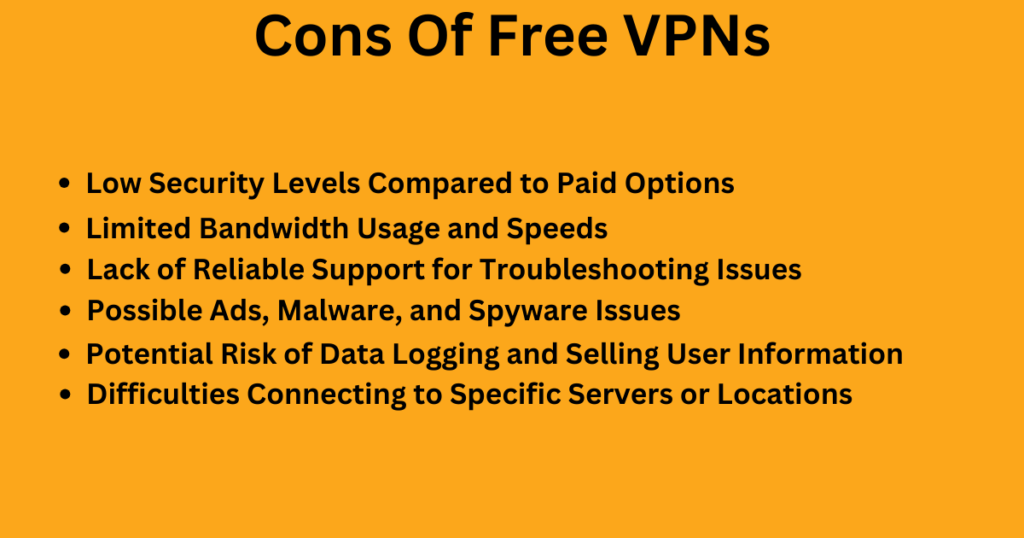
Paid VPN: 6 Reasons Why You Should Use One
In recent years, the use of virtual private networks (VPNs) has skyrocketed, with more and more individuals realizing the importance of online security and privacy. While there are both free and paid VPN services available, opting for a paid VPN brings several distinct advantages that shouldn’t be overlooked. Here are six compelling reasons why you should consider using a paid VPN.
1. Enhanced Security: When it comes to online security, you simply cannot compromise. Paid VPNs offer top-notch encryption protocols and robust security features that ensure your personal information and browsing activities remain completely protected from prying eyes. Unlike some free VPNs that may sell your data to advertisers or limit your security capabilities, investing in a paid VPN ensures your online footsteps are well hidden.
2. Speed and Reliability: Free VPN servers are typically crowded with a large number of users, leading to slower speeds and intermittent connectivity issues. However, opting for a paid VPN guarantees faster connections and more reliable service. Their dedicated servers allow for smoother browsing, seamless streaming, and faster downloads, providing an overall superior internet experience.
3. Unlimited Bandwidth: Many free VPN services impose limitations on bandwidth, meaning you’re restricted in terms of how much data you can consume. This can be frustrating, especially for those who frequently stream content or engage in heavy online activities. Paid VPNs often offer unlimited bandwidth, giving you the freedom to explore the internet without any restrictions.
4. Access to Geo-Restricted Content: One of the major advantages of using a VPN is bypassing geographical barriers and accessing content that may be restricted in your region. Paid VPN services generally have a wider selection of servers spread across the globe, allowing you to effectively fool websites into thinking you’re browsing from a different location. This unlocks a treasure trove of content, from international streaming platforms to region-specific websites.
5. 24/7 Customer Support: Dealing with technical issues or troubleshooting problems can be a frustrating experience, especially if you’re using a free VPN without any reliable customer support. In contrast, paid VPNs often provide round-the-clock assistance via various channels, such as live chat, email, or phone. Having this reliable support system at your disposal not only ensures a more seamless and stress-free VPN experience but also adds an extra layer of confidence.
6. Trustworthiness: Lastly, opting for a paid VPN service guarantees a higher level of trustworthiness compared to their free counterparts. Free VPNs are known to be less transparent about their business models and often engage in dubious practices to sustain their services. Paid VPNs, on the other hand, rely on subscription fees and have a reputation to protect. Therefore, they are more likely to prioritize their users’ privacy and prioritize offering a superior product.
While free VPNs might seem enticing at first glance, the benefits of using a paid VPN far outweigh the cost. With enhanced security, faster speeds, unlimited bandwidth, and unrestricted access to geo-restricted content, a paid VPN is a worthwhile investment for anyone concerned about their online privacy and browsing experience. Don’t compromise; take control over your online presence with a paid VPN.
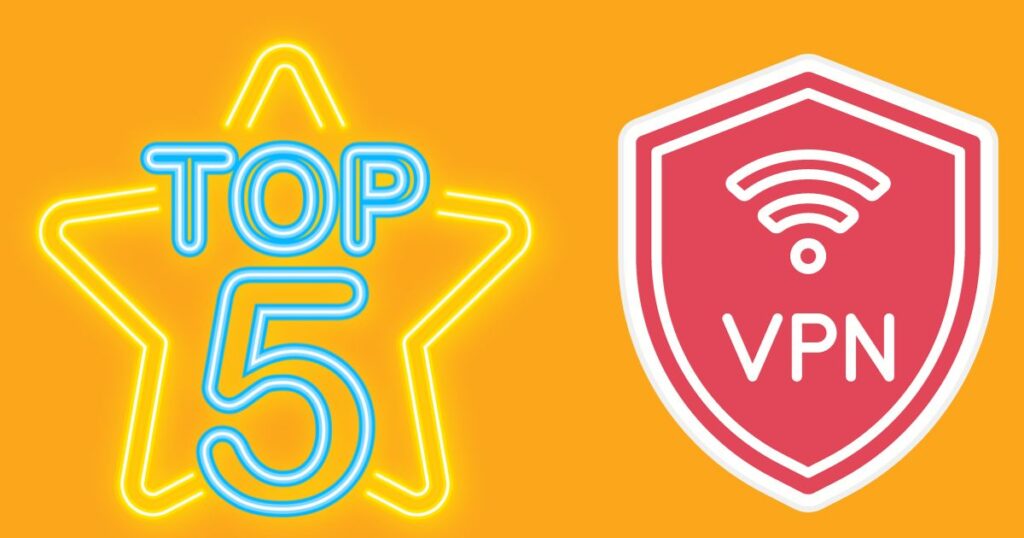
Read More: 5 amazing VPNs of the world
In this comprehensive guide, we’ll delve into the unique features, pros, and cons of each VPN, helping you make an informed decision.
Top-Notch Features
The world of technology is constantly evolving, and with each passing day, we witness the introduction of innovative features that enhance our daily lives. Among these features are the top-notch ones that truly elevate our user experience. From smartphones to smart home devices, here are six top-notch features that are worth exploring.
1. Face Recognition:
Gone are the days of entering cumbersome passwords or patterns to unlock our devices. Face recognition has revolutionized the way we access our smartphones, laptops, and even some home security systems. With the help of advanced facial recognition algorithms, these devices can identify our unique facial features and grant us immediate access. This seamless authentication process not only saves time but also adds an extra layer of security.
2. Artificial Intelligence:
Artificial Intelligence, or AI, has become an integral part of our lives, making our devices smarter by the day. AI-powered virtual assistants, like Siri, Alexa, or Google Assistant, can answer our questions, provide valuable information, and even carry out tasks on our behalf. These virtual companions continuously learn from our interactions to tailor their responses and suggestions, ensuring a personalized and efficient experience.
3. Wireless Charging:
Bid farewell to unsightly cords cluttering your desk or nightstand. Wireless charging has revolutionized the way we juice up our devices. By simply placing our smartphones, smartwatches, or earbuds on a charging pad, they begin to charge wirelessly, eliminating the need for wires or connectors. This convenient feature allows for an organized and clutter-free environment.
4. High-Quality Cameras:
The emergence of high-quality cameras on our smartphones has turned us all into amateur photographers. With impressive resolution, enhanced low-light capabilities, and features like optical zoom and portrait mode, we can capture stunning photographs with ease. Social media platforms are flooded with beautiful images, all thanks to these top-notch camera features.
5. Voice Recognition:
Voice recognition has come a long way, transforming how we interact with our devices. From dictating messages to voice searching, this feature has made our lives more hands-free and efficient. Voice assistants can now comprehend natural language, allowing us to have fluid conversations with our devices. Whether it’s setting reminders, playing music, or even controlling smart home devices, voice recognition adds a new layer of convenience to our lives.
6. Smart Home Integration:
Imagine controlling and automating various aspects of your home with just a few taps on your smartphone or through voice commands. Smart home integration has made this a reality, allowing us to control lighting, heating, and security systems seamlessly. With the help of smart devices and IoT technology, we can create a comfortable, secure, and energy-efficient home environment by customizing settings to our preferences.
The Bottom Line: Are Paid VPNs Worth It?
Firstly, let’s discuss the primary motivation behind using a VPN — privacy. Paid VPN services often offer stronger privacy protections than their free counterparts. These paid versions typically employ advanced encryption protocols, ensuring that your data remains secure and private. Additionally, reputable paid VPN providers often have strict no-logs policies, meaning they won’t keep records of your online activities, offering an extra layer of anonymity that free VPNs lack.
Moreover, paid VPNs frequently offer a larger network of servers in various locations worldwide. This diversity allows users to access content that may be restricted or censored in their region. For instance, individuals utilizing a paid VPN can bypass geo-restrictions for streaming platforms like Netflix, giving them access to a wider range of shows and movies. Free VPNs are notorious for weak server networks, resulting in slower speeds and limited access to content.
Another crucial factor to consider is the reliability and quality of customer support. When using a paid VPN service, users can typically rely on 24/7 support from knowledgeable professionals. Whether you encounter technical issues or have questions about privacy settings, paid VPNs offer a dedicated customer service team to assist you promptly. On the other hand, free VPNs often lack robust customer support, leaving users to figure things out on their own.
Certainly, one of the most significant concerns people have with paid VPNs is the cost. However, it’s important to remember that quality service often comes at a price. A paid VPN may cost a few dollars per month, but the improved security, privacy, and accessibility it provides make it a worthwhile investment for many. When compared to the potential risks associated with using a free VPN, such as selling user data or transmitting malware, the cost of a paid VPN seems minimal.
It is worth noting that there are reputable free VPNs available, but they are few and far between. These providers usually have limitations, such as bandwidth caps, slower speeds, or restricted server choices. Ultimately, if you value your online privacy and security, choosing a paid VPN is a safer, more reliable option.
FAQs For Free VPNs vs. Paid VPNs
To help you make an informed decision, let’s address frequently asked questions regarding the pros and cons of both options.
1. Are free VPNs truly free?
While free VPNs do not require upfront payments, they often come with limitations. Free service providers fund their operations through advertisements or by selling user data to third parties. This compromises their commitment to preserving privacy. Additionally, free VPNs commonly impose restrictions on bandwidth usage, server availability, and connection speed. Consequently, these limitations can negatively impact your online experience.
2. Do paid VPNs offer better security?
Paid VPNs are known for superior security measures. Subscribing to a reputed service grants you access to robust encryption protocols, ensuring your data remains encrypted from end to end. In contrast, free VPNs may not offer the same level of security, raising concerns about whether your personal information is truly safeguarded.
3. Is customer support a factor?
Paid VPN providers often offer responsive customer support, allowing users to resolve any issues promptly. Most paid VPNs maintain comprehensive FAQs, knowledge bases, and even live chat options. In contrast, free VPNs may not provide extensive or proactive customer support. The lack of dedicated assistance can be frustrating for users in need of troubleshooting or guidance.
4. Can free VPNs unblock region-restricted content?
Many internet users rely on VPNs to access region-restricted content, such as streaming platforms or websites blocked in their country. While some free VPNs claim to bypass these restrictions, they often have limited server locations or inconsistent performance, leading to buffering issues and interrupted streaming. Paid VPN services, on the other hand, usually offer an extensive network of servers worldwide, providing a more reliable and seamless streaming experience.
5. Are there any risks associated with free VPNs?
Using a free VPN entails certain risks. Since these services are often provided by unknown or less transparent entities, there is a potential for compromise or misuse of user data. Furthermore, free VPNs may not undergo regular security audits or updates, making them vulnerable to cyber threats. Opting for a paid VPN from a reputable provider significantly reduces these risks.
Ultimately, the choice between a free VPN and a paid VPN depends on your priorities and requirements. Free VPNs may seem appealing due to cost efficiency, but the trade-offs in terms of security, performance, and user experience can be significant. On the other hand, paid VPNs offer comprehensive features, better privacy assurances, and reliable customer support. Consider these factors carefully to choose the VPN option that aligns with your online security needs and budget.
